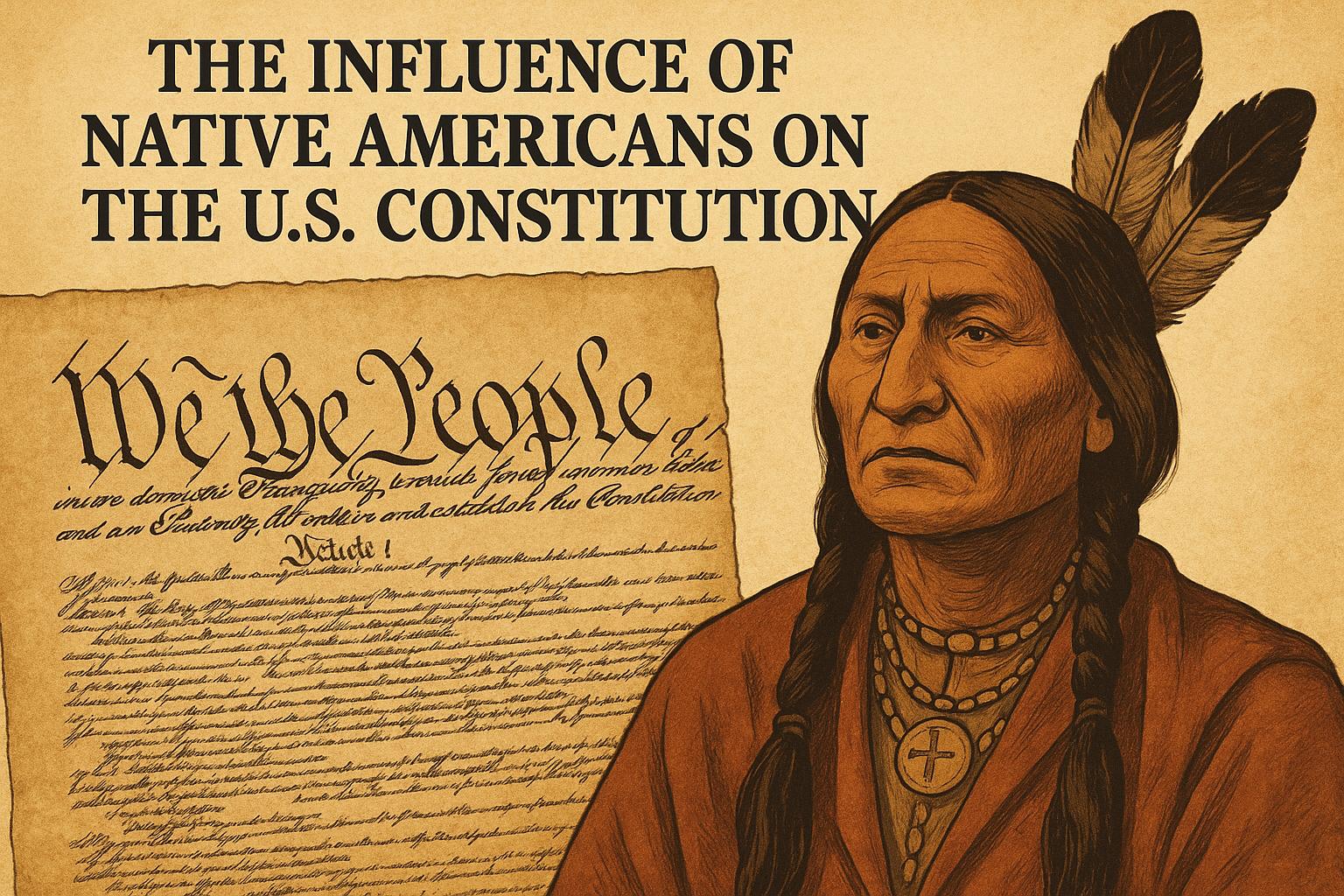The Influence of Native American Governance
The creation of the United States Constitution is often attributed to the collective efforts and philosophies of European Enlightenment thinkers. However, less frequently discussed are the substantial contributions and influences of Native American governance systems, most notably the Iroquois Confederacy, also known as the Haudenosaunee.
The Iroquois Confederacy as a Precursor
The Iroquois Confederacy represents a unique and complex form of government that predates European settlement in North America. This federation comprised six nations—the Mohawk, Oneida, Onondaga, Cayuga, Seneca, and later, the Tuscarora—demonstrating a sophisticated model of a federal system which emphasized democracy and the importance of collaborative governance. This confederation, under the Great Law of Peace, advocated for principles like checks and balances, elements that were successfully transposed to the U.S. Constitution by its framers.
Drawing Parallels: Democratic Ideals and Federalism
The Iroquois Confederacy provided the framers of the U.S. Constitution with a practical example of federalism—a system where powers are divided between a central authority and constituent political units. Remarkably, the framers adopted this approach when establishing a federal government in America, where states retained specific powers while the national government held others. The Iroquois system’s democratic principles were evident in its council meetings and decision-making processes, which necessitated a consensus among the different nations. This consensus-based decision-making demonstrated an early form of democratic governance, which influenced the insistence on a system that encouraged balanced power through representation and participation, mirroring the ideals pursued during the Constitutional Convention.
Deliberative Decision-Making Processes
Under the Great Law of Peace, the decision-making process involved rigorous debates and required consensus, which starkly contrasted with the idea of governance by a single, overarching authority. This practice emphasized the significance of representation and full participation in governance, elements that played a crucial role in shaping the legislative branch of the United States. The approach reflected the objectives of the Constitutional Convention, which aimed to achieve effective governance without the perils of concentrated power. The Iroquois decision-making mirrored the foundational democratic principle where authority was derived from the people’s consent, rather than imposed from above.
The Recognition of Native Influence
While the extent of influence the Iroquois Confederacy wielded over the framers remains a subject of debate, several historical records and accounts suggest that influential figures, such as Benjamin Franklin and Thomas Jefferson, were aware of, and likely inspired by, the Iroquois system. Acknowledging this influence underscores an appreciation of Native American political ingenuity during a period when European powers often regarded indigenous peoples through a colonially skewed perspective.
The Iroquois Confederacy’s contributions undeniably illuminate how Native American governance systems played a pivotal role in shaping American political thought, yet these contributions remain overshadowed in historical narratives. Exploring resources like PBS or works by experts in American Indigenous history can offer valuable insights into these substantial yet underappreciated influences on American democracy.
Continuities and Influence on Early American Leaders
Despite the passage of time, Native American governance systems, particularly the Iroquois Confederacy, have continued to draw scholarly attention for their remarkable structure and function. This attention highlights the profound respect and interest early American leaders held towards these systems. Prominent figures such as Franklin and Jefferson not only admired these systems but actively incorporated several indigenous principles into their vision for the burgeoning American government.
Early American leaders were particularly struck by the way the Confederacy maintained unity among diverse groups through shared principles and collective decision-making. These traits were seen as essential for uniting the thirteen colonies, which, like the Iroquois nations, were diverse and had varying interests. The Iroquois’ success in maintaining peace and cohesion among its member nations provided a credible template for building a unified federal system in the United States.
The Long-lasting Legacy of Native American Governance
The principles of governance observed in the Iroquois Confederacy have continued to resonate well into modern times. Many of the concepts advocated by this governance system, such as divided authority, consensus decision-making, and respect for individual autonomy, are evident in current democratic practices around the world, suggesting a lasting impact on political systems beyond the United States.
Moreover, in recognizing the role of Native American governance in shaping modern political frameworks, we obtain a more comprehensive understanding of the contributions Native American societies have made to world history. This recognition not only allows for a more inclusive historical narrative but also provides an opportunity to appreciate the sophistication of indigenous political systems that existed long before the arrival of European settlers.
Future Implications and Acknowledgment
Understanding the influence of Native American governance on the development of modern political systems mandates a continual reassessment and appreciation of indigenous contributions to history. As dialogues surrounding indigenous rights and recognition gain traction globally, revisiting these historical narratives offers pathways to reconciliation and respect toward cultures that have been historically marginalized.
Furthermore, acknowledging these influences, and incorporating them into broader educational curricula, can foster a well-rounded comprehension of the dynamics that have shaped modern democratic ideals. By doing so, we not only pay homage to the rich history of governance that preceded European intervention but also underline the enduring legacy these systems have imparted.
In conclusion, the Iroquois Confederacy stands as a testament to the profound impact of Native American governance on the formulation of democratic ideals. It emphasizes the importance of consensus, power distribution, and unity—principles that have not only shaped the formation of the United States Constitution but continue to guide democratic societies today. Embracing and understanding this influence allows for a more holistic view of history and offers significant insights into the indigenous roots of American governance.

